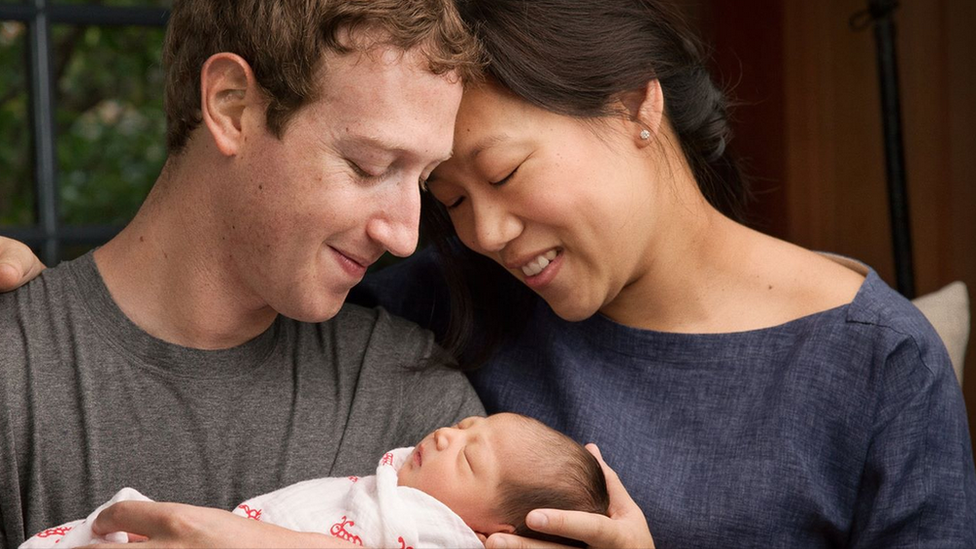Zuckerberg and Chan aim to tackle all disease by 2100
- Published
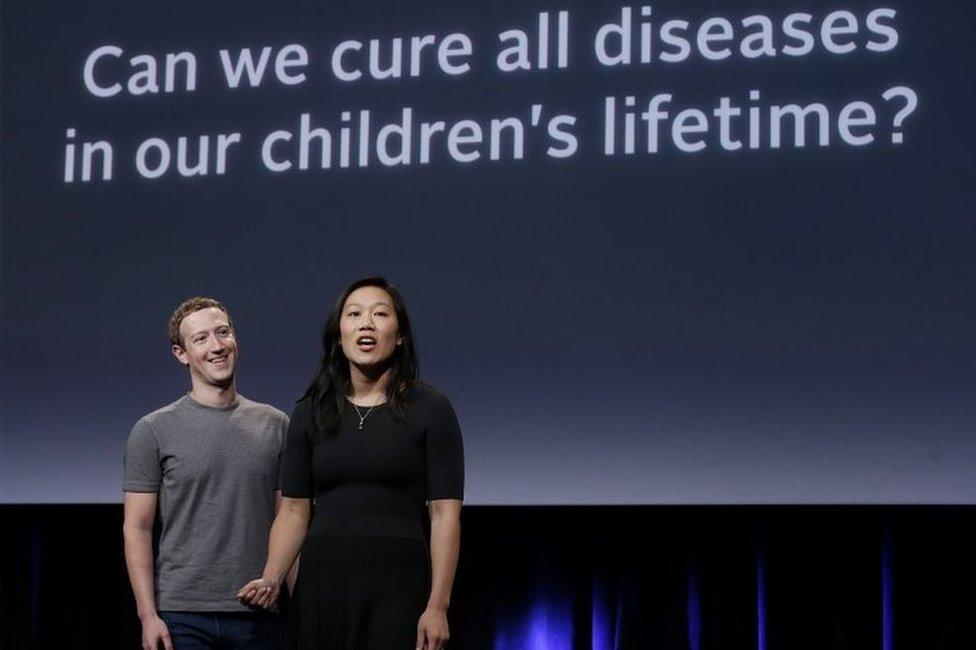
Priscilla Chan was trained as a paediatrician
Facebook's founder Mark Zuckerberg and his wife Priscilla Chan have pledged $3bn (£2.3bn) to fund medical research over the next decade.
At a press conference in San Francisco, they said their ultimate goal was to "cure, prevent or manage all diseases by the end of the century".
The funds will be distributed by the Chan Zuckerberg Initiative, which they created in December 2015.
Tech leaders are increasingly turning their attention to health.
Earlier in the week, Microsoft said it intended to "solve" cancer by using artificial intelligence tools, external.
Google's DeepMind unit is working with the NHS, external to find a way to use computers to more accurately diagnose diseases.
And IBM and MIT announced a tie-up, external earlier this week to develop AI-based systems that could help clinicians improve the care of elderly and disabled patients.
Even so, the Chan Zuckerberg plan is marked by its ambition.


Analysis by James Gallagher, health and science reporter, BBC News
This is certainly an ambitious project, but is $3bn (£2.3bn) over the next decade enough to fulfil it?
One British charity - Cancer Research UK - is likely to spend more in that time on just one disease. Its research budget is currently $0.5bn (£404m) a year.
The Wellcome Trust - the world's biggest medical research charity - is investing significantly more: $6.5bn (£5bn) over the next five years.
And the US' medical research agency, the National Institutes of Health, spends a whopping $32.3bn (£25bn) every year.
There is no doubt that the Chan Zuckerberg Initiative could make a real impact - the Bill and Melinda Gates Foundation has given real impetus to eliminating malaria.
And advances in technology are transforming and accelerating medical research - for example, cancer drugs designed by artificial intelligence are showing success in clinical trials.
But curing, preventing or managing all disease remains a lofty and distant goal.

Biohub projects
Mr Zuckerberg said that at present 50 times more money was spent on treating people who are sick than on curing the diseases that would stop them getting ill in the first place, and added that this needed to change.
Mark Zuckerberg: "We all have an opportunity to leave the world a much better place than we found it."
He outlined three principles that will guide the couple's investments:
to bring scientists and engineers together
to build tools and technology that advance research
to grow the movement to fund more science around the world
Ms Chan added that they had already committed $600m to creating a new research centre called the Biohub, which will bring together engineers, computer scientists, biologists, chemists and other innovators.
The Biohub will initially work on two projects.
The first is the Cell Atlas, a "map" that describes the different types of cells that control the body's major organs.
The second is the Infectious Disease Initiative, which will try to develop new tests and vaccines to tackle HIV, Ebola, Zika and other new diseases.
Mr Zuckerberg predicted that by 2100 the average life expectancy would be beyond 100 years.
But he cautioned that it would take years before the couple's fund led to the creation of new medical treatments and further time before they could be applied to patients.
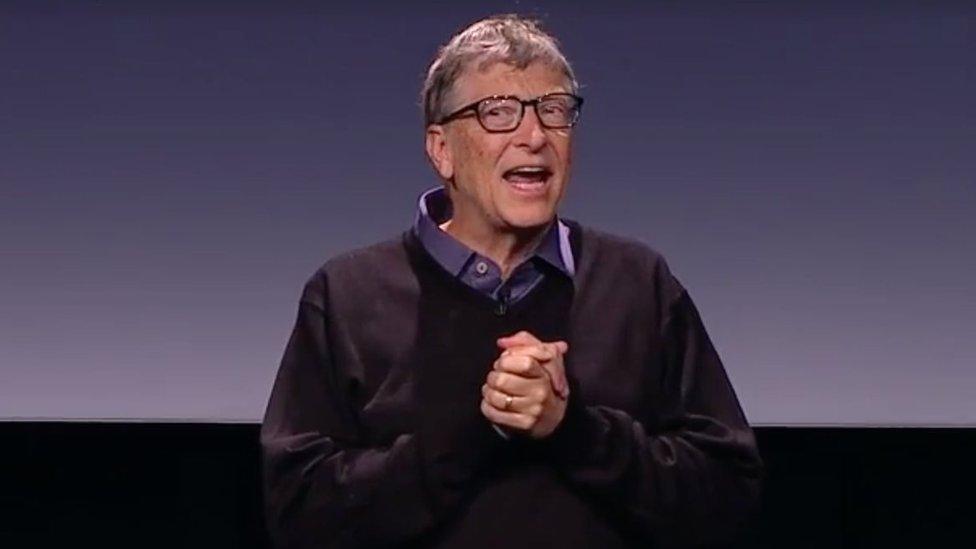
Bill Gates said his hosts were making an "incredible commitment to research and development"
Microsoft's co-founder Bill Gates - who has funded his own health research via the Bill & Melinda Gates Foundation - appeared at the event to praise the announcement.
He described it as "very bold and ambitious" but added that "we desperately need this science".
Long-term goals
Mr Zuckerberg and Ms Chan announced in December 2015 that they planned to give away 99% of their shares in Facebook to fund good causes following the birth of their daughter.
The organisation's stated mission is to make long-term investments in work that advances human potential and promotes equality.
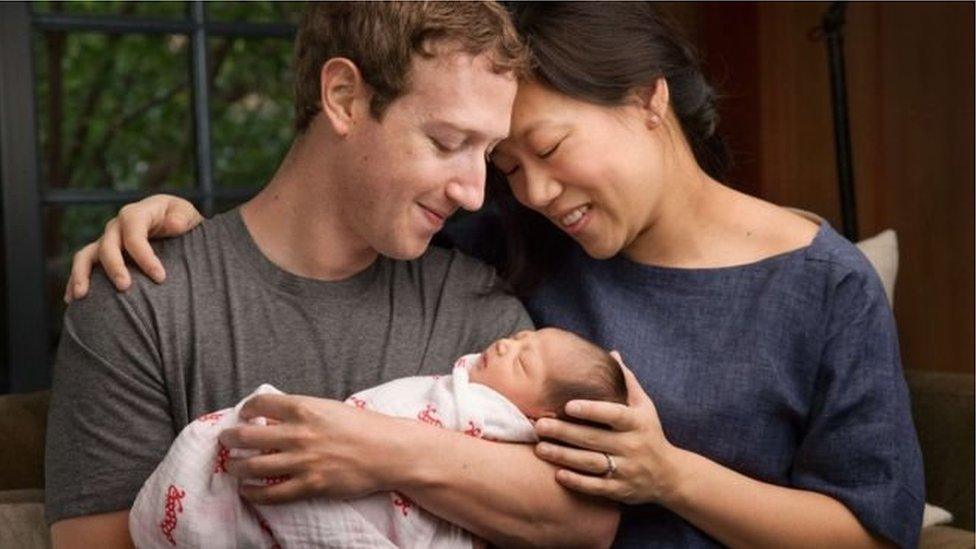
Mr Zuckerberg and Ms Chan set up their philanthropic company following the birth of their daughter Max
They had previously announced investments in education-related start-ups.
One expert said that dealing with all disease was "clearly ambitious" but added that deep-pocketed philanthropists were defined by the fact they could take such risks.
"The Chan Zuckerberg announcement is unusual in size but is in keeping with trends amongst today's biggest donors who want to achieve transformational change, prefer funding prevention over cure and tend to invest in causes and organisations with which they have prior connections," commented Dr Beth Breeze, director of the centre for philanthropy at the University of Kent.
"Most donations reflect the 'philanthropic autobiography' of the donor and this is no exception.
"Chan is an alumna of the University of California, San Francisco.
"So, the couple will already know and trust the people who will spend the money.
"She is trained as a paediatrician and recently became a mother so is aligning her professional and personal experiences with her philanthropic priorities."
- Published22 September 2016
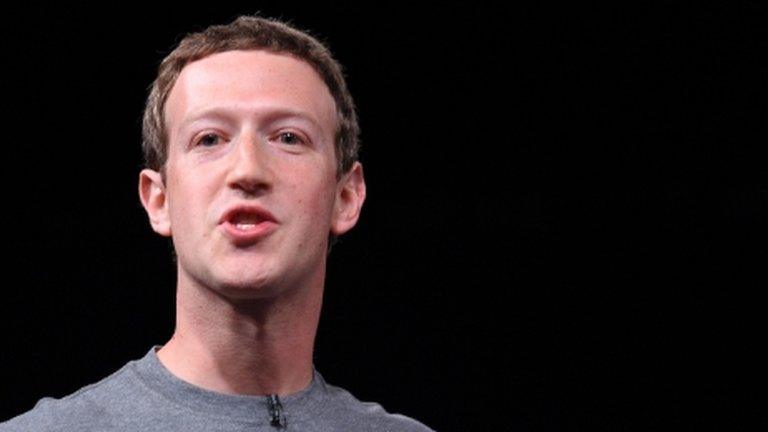
- Published22 September 2016
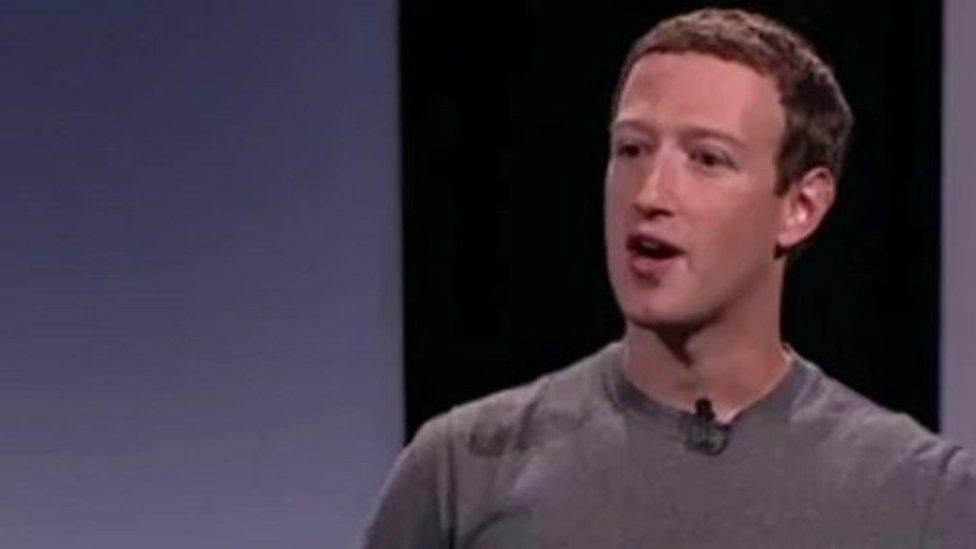
- Published2 December 2015
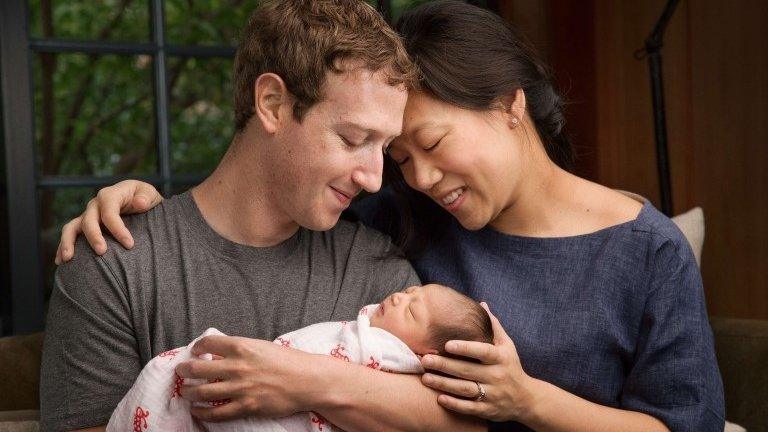
- Published2 December 2015
- Published2 December 2015
- Published4 December 2015
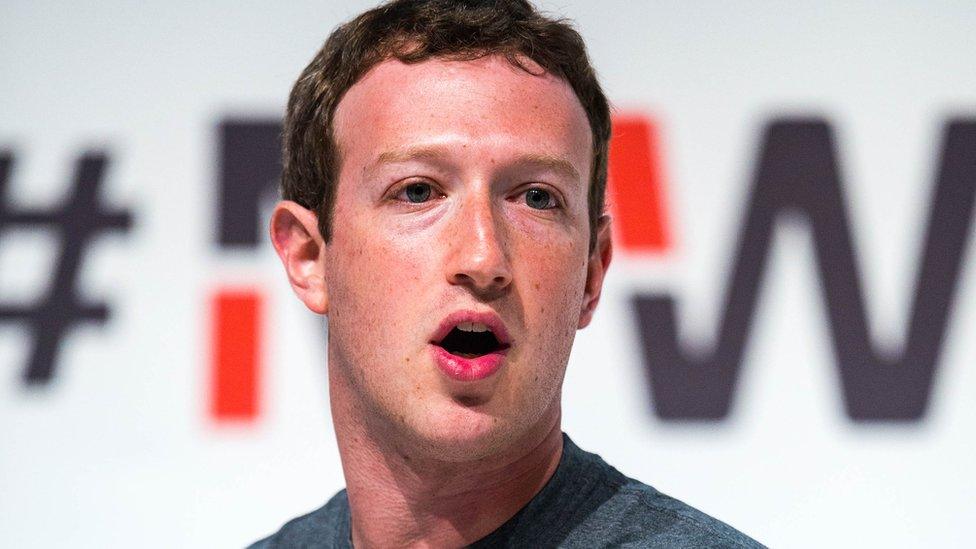
- Published2 December 2015
